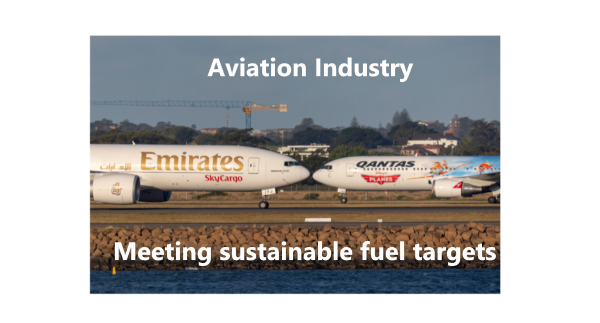Australia risks being priced out of international aviation as carbon pricing and other targets take effect, the Australian Airports Association (AAA) has said in a submission to the House of Representatives Standing Committee on Economics Inquiry into promoting economic dynamism, competition and business formation. In Australia, cargo makes up approximately 12% of the major airlines’ turnover and air freight comprises over 21% of our international trade.
In its submission this week, the AAA said international airlines could cut flights to the country in years to come due to the levels of pollution curated as a byproduct of long-haul routes. They suggested to the inquiry it would be imperative to ensure the local sustainable aviation fuel (SAF) industry and stores will be capable of refuelling carriers that travel to Australia, and that failing to do so could potentially isolate Australia.
In recent years the Australian aviation industry has begun working hard on new SAF targets.
As we reported in our article in April, BNE at Forefront of Aviation Logistics (see HERE), the Queensland government announced a partnership with Qantas to sign a memorandum of understanding to delivery Australia’s first bio-refinery to produce 100 million litres of SAF annually, with construction to start next year.
Qantas currently uses green aviation fuel sourced overseas and is targeting 10% SAF in its fuel mix by 2030, and about 60% by 2050.
In Australia, airfreight – international and domestic – represents an annual trade volume of around 1.2 million metric tons with a trade value of approximately 110 billion Australian dollars. Internationally, high value or time sensitive products (20% by value, 0.01% by weight) worth approximately A$50 billion are moved by air per year.
The importance of cargo to full-service airlines is approximately 12% of airline turnover, which makes cargo a key generator of revenue in the typically cost sensitive, low margin passenger airlines. Most international freight is carried as belly cargo on passenger flights (approximately 80% into Australia) while approximately 45% of domestic freight is carried in full freighter aircraft.
If Australia is expected to suffer potential flight cuts, we anticipate our friends across the ditch will face the same fate. Last month, Air New Zealand and the New Zealand government announced their own strategy to boost SAF, signing a two million dollar plus investment into next phase studies of SAF production in New Zealand.
As licensed Customs Brokers and International Freight Forwarders, Colless Young professionally handles all your air cargo consignments. We provide import and export shipping, whether by air or sea freight, including customs and quarantine clearance, fumigation treatment, warehousing and trucking. We are based in Brisbane and offer a complete range of logistics services through all Australian ports and airports.

